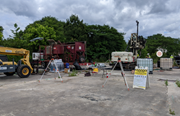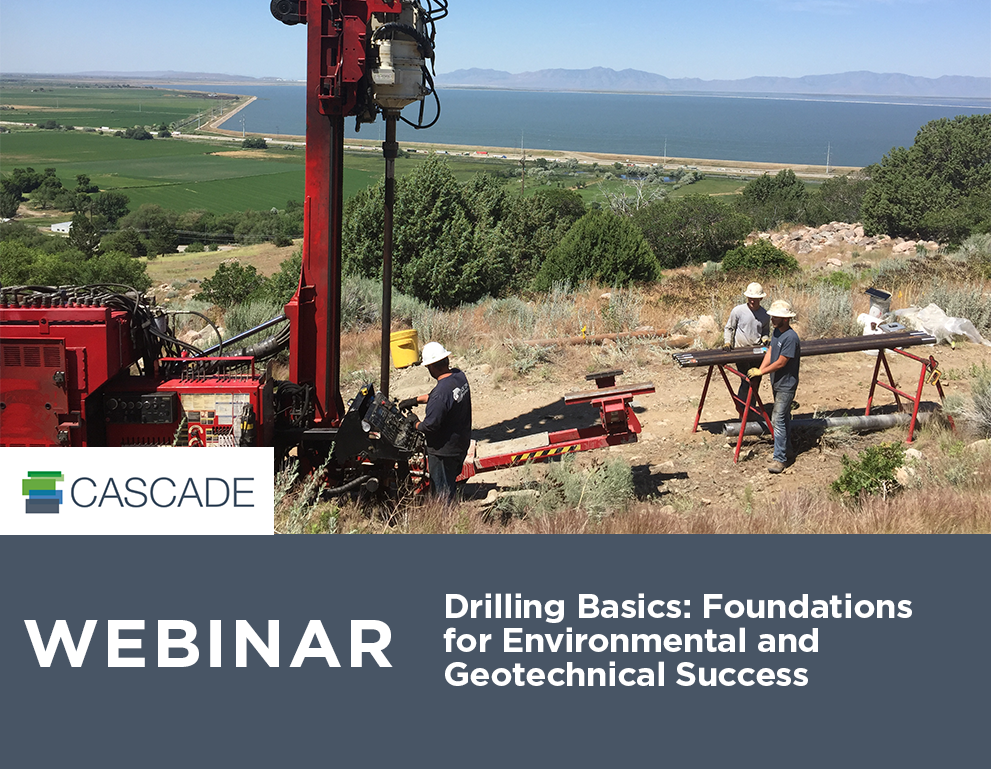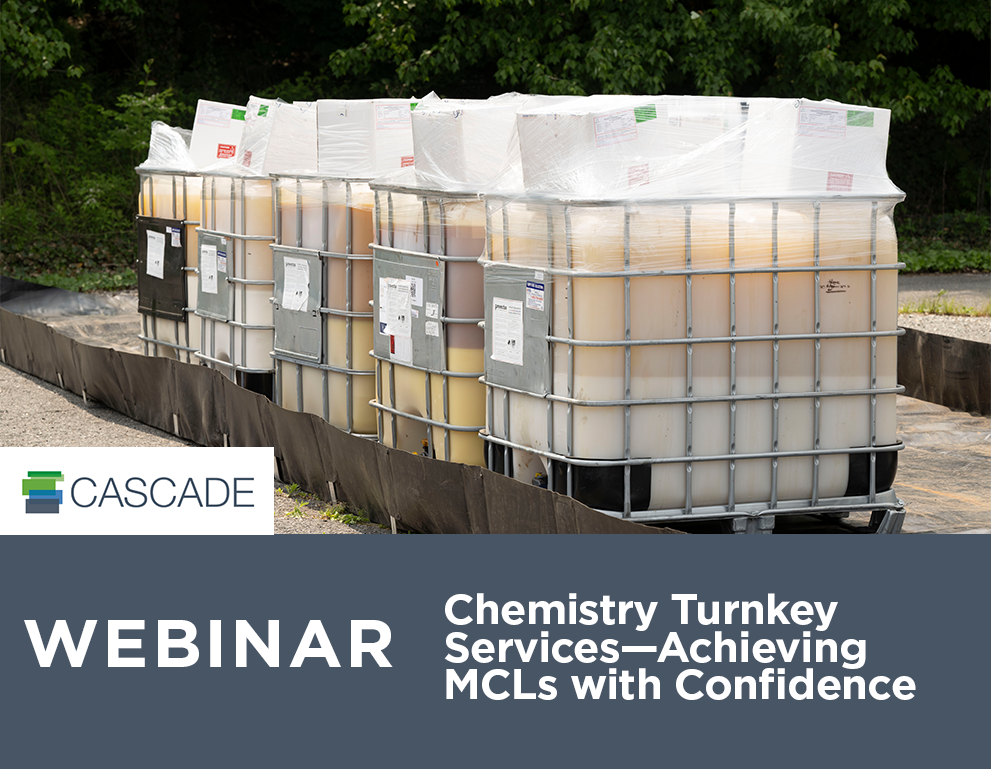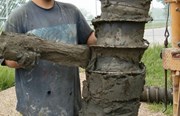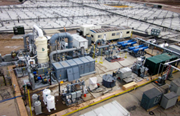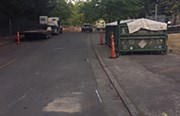What Can Your Post-Military Career Look Like?
By: Jessica AlexanderTransitioning from the military into a civilian career can be tough.
Recruiters and hiring managers don’t always know how your skills and experience transfer to the roles they’re interviewing for, and you may not know how to translate your value into terminology they’re familiar with. And for many veterans, choosing a career path is difficult because you still crave the positive aspects of military service—such as a hard work ethic, a sense of mission and comradery with your co-workers—that many workplaces can’t provide.
The environmental services industry is often a good fit for people transitioning from military to civilian careers. Many people already working in it (ahem, like me) are veterans themselves, and know what you bring to the table. It’s also one of the few remaining industries where you can work your way up from entry level roles into senior leadership based on your experience and hard work—just ask our CEO, Ron Thalacker, who started out as a driller assistant.
If you decide to take a job in environmental services, it doesn’t need to be “just a job.” It can be a career. In this blog post, I’ll outline a few of the entry and mid-level field service roles where many people get their start. I’ve included brief descriptions of each position, as well as any training or previous experience required to fulfill the role.
Entry-Level Positions
Driller Assistant
A driller assistant supports the drilling crew working on a project site. Typically, the other members of the crew include a driller and possibly a heavy equipment operator or driver. The driller is the person primarily responsible for operating the drill rig. The driller assistant is an on-the-job learning role, with the goal of eventually becoming a full-fledged driller themselves one day. In the meantime, the role includes moving, setting up and operating drilling rigs and related equipment under the direct supervision of the driller.
Working as a driller assistant requires the ability to travel, as well as the ability to work with a small crew of two to four individuals. The work of a driller assistant can be labor intensive and is typically outdoors. This is an entry level role that does not require previous experience.
Field Assistant
The field assistant role is similar to that of a driller assistant, in that it’s intended to provide on-the-job training for a more advanced position. Unlike the driller assistant, the field assistant works on remediation projects instead of drilling projects, and receives mentorship and direct supervision from the crew’s probe operator and/or technical specialists. Field assistants are tasked with supporting the rest of the crew in remediation activities centered around in situ injection technologies and soil and groundwater site characterization.
This is a role that requires the person in it to travel and work well with a small crew. Like the driller assistant, the field assistant is an entry level role and does not require prior experience. It does require labor intensive work that is mostly outdoors.
Shop Helper
A shop helper works in (you guessed it!) a shop, and assists with the maintenance, repair, and refurbishment of vehicles and equipment. What happens in the shop is what can make or break an environmental services company—nothing gets done without safe, working equipment.
This work is performed in a team environment with meticulous attention to detail. Good communication skills and the ability to follow directions are critical.
Thermal Field Technician
A thermal field technician is responsible for handling mechanical issues when thermal remediation equipment is on a project site. This person performs tasks like assembling and disassembling process equipment, forklifts, and skid steer operations. They troubleshoot and repair on site (unlike mechanics, who typically have more experience and usually work in a shop on complex mechanical issues).
To succeed in this role, a thermal field technician must demonstrate initiative, communicate effectively, follow work plans, and have a high level of safety awareness. They also need to understand site-specific health and safety plans and activity hazards analyses.
Mid-Level Positions
Driller
When you think of a driller, you probably envision someone operating a giant drill rig. While that’s definitely part of the job, there is much more that goes into it. This person also ensures on-site operations are conducted in accordance with the drilling plan from implementation through completion and abandonment of drill sites. A driller leads the crew in preparing equipment and the site for setup and breakdown, and has their commercial driver’s license (CDL) to safely transport equipment to and from the project site.
To work in this role, you must learn how to operate a drill rig and function safely on a drill site. These skills are taught in a select number of schools worldwide, but most drillers learned on-the-job as driller assistants. Similar to a driller assistant, the driller must be willing to travel and work outdoors, as well as obtain their CDL.
Probe Operator
In the world of environmental remediation, probes are used to determine if soil and groundwater are contaminated—and if so, with what contaminants and the extent of the contaminated area (this is called site characterization). The probes are also used to inject amendments, or substances that will destroy or isolate contaminants below ground (this is a type of remediation). A probe operator assists the project manager and moves, sets up and operates the machinery that will advance probes below ground.
To attain this role, you must have experience operating direct push technology, or probe equipment, in the environmental drilling industry. Most probe operators attain this experience through on-the-job training. As with many of the other roles we’ve covered, it typically requires travel and the willingness to work outdoors.
Technical Specialist
A technical specialist works on crews and projects centered around identifying areas of contamination, and injecting remediation amendments at the site of contamination. Individuals in this position are responsible for the safe and effective operation of amendment mixing and injection equipment, and application of the different injection methods, tooling, and mechanical systems.
People in this role are promoted into it after attaining specific knowledge related to high resolution site characterization and other remediation technologies and solutions.
Thermal Systems Operator
Thermal remediation is a way of removing or destroying contaminants in the soil, and it works by applying heat. A systems operator is responsible for the safe operation of equipment on these types of remediation projects. A person in this role leads operations for their team on a wide range of projects and tasks, including construction of the equipment on site. The job involves conducting routine maintenance on the equipment, disassembly of equipment when the project ends, and training less experienced team members. A systems operator must maintain a high level of professionalism and commitment to quality work.
Individuals in this role must be able to solve problems and troubleshoot challenges, while also communicating effectively with the team. As with most positions, ensuring a safe work site and the safety of the crew is of utmost importance.
Developer
A developer is responsible for assisting in the installation of new monitoring and water wells, redeveloping and rehabbing existing monitoring and water wells, installing and maintaining new and existing pumping systems, testing well and pumping systems, and performing well closures or abandonments. This role also requires occasional equipment repairs and maintenance as problems arise. Individuals in the developer role serve as team leaders for the development crew and are responsible for ensuring safe work site operations.
To be an ideal fit as a developer, prior experience operating pump equipment is ideal. However, most individuals in this role receive training as a driller assistant and are promoted to a developer. Attention to detail, a strong safety mindset, as well as the willingness to travel and work outdoors are also key components to success.
Field Supervisor
Field supervisors are responsible for preparing environmental remediation activities, as well as overseeing and performing tasks associated with various technologies. This person ensures the project is executed on time, on budget, and to the specifications of the client. Field supervisors lead project execution in the field, but are also expected to train and mentor junior level employees.
To be an effective field supervisor, one needs to be knowledgeable about the technologies and equipment commonly used in the environmental services industry and have a keen eye for health and safety.
Specialized Positions
Mechanic
Without mechanics, no drilling or remediation company would ever get anything done! A mechanic performs maintenance and repair functions on heavy duty machinery and equipment and are often called upon to help modify rigs for specific project needs. In this industry, a mechanic is responsible for general maintenance, repairs and troubleshooting on various types of trucks and equipment, and must possess an understanding of diesel engines, gas powered engines, hydraulics, electrical systems, and pumps. They typically work out of a shop but may be needed on site to deal with equipment issues that crews are unable to handle themselves.
To work in this role, multitasking and prioritization skills are a must! Mechanics work in a setting with minimal supervision, so initiative and a problem-solving attitude go a long way. Many mechanics in the environmental services industry started their careers conducting maintenance on automobiles, ships, and even airplanes.
Thermal Electrical Engineer
A thermal electrical engineer works on thermal remediation projects. This person is responsible for overseeing and performing electrical and controls engineering and activities associated with thermal remediation projects. This includes heater and electrical equipment calculations, designs, drawings, electrical equipment specification and design, work plan preparation, permitting, cost estimation, equipment procurement and fabrication, system startup, and system troubleshooting, as required.
To work in this role, one would ideally have a mix of design engineering, field engineering, project management, and people management experience. Electrical engineers also work with clients and collaborate with the field team throughout the project lifecycle.
Project Manager
A project manager is an integral part of a company’s operations and project success. They help clients conceptualize and scope technical projects, estimate project costs, plan and schedule the work, and direct the implementation of field work on site. A project manager ensures projects are delivered on time, within budget, and as requested. This individual is also responsible for maintaining positive relations with existing and potential clients, consultants, property owners and governmental/regulatory personnel. While typically based in an office setting, project managers are often needed on site or to meet with clients, consultants, and other contractors. This role is a good fit for people who work best with a consistent framework but with a lot of variety day-to-day, and who can manage many details simultaneously.
Many project managers start their careers in entry-level roles to learn the day-to-day operations of environmental drilling and remediation projects. Project managers are quick thinkers, problem solvers, and team builders. A solid understanding of both operations and people management is critical for this role.
This list is not exhaustive—there are many other opportunities in various departments and capacities, but it should give you a taste of the possibilities. If you’re interested in applying for roles like those above, check out our Career hub to see our current openings.
If you’re in the midst of transitioning out of the military, please download your free copy of Your Next Assignment: A Military to Civilian Transition Guide to Launching a Career in Environmental Services. It was written for you, and is filled with information and resources I wish I’d had when ending my career in the Air Force.
ABOUT THE AUTHOR

Jessica Alexander, SHRM-SCP
DIRECTOR OF TALENT ACQUISITION
[email protected]
Jessica Alexander is the Director of Talent Acquisition for Cascade Environmental, LLC. She holds a B.S. in Human Resource Management, B.S. in Business Administration, MBA, and Doctorate of Philosophy (ABD) in Human Resource Management. After completing ten years of military service in the United States Air Force in the Logistics and Transportation Management field, Jessica launched a distinguished career specializing in recruiting and talent development. She is passionate about the development of people and their ability to drive companies forward.




